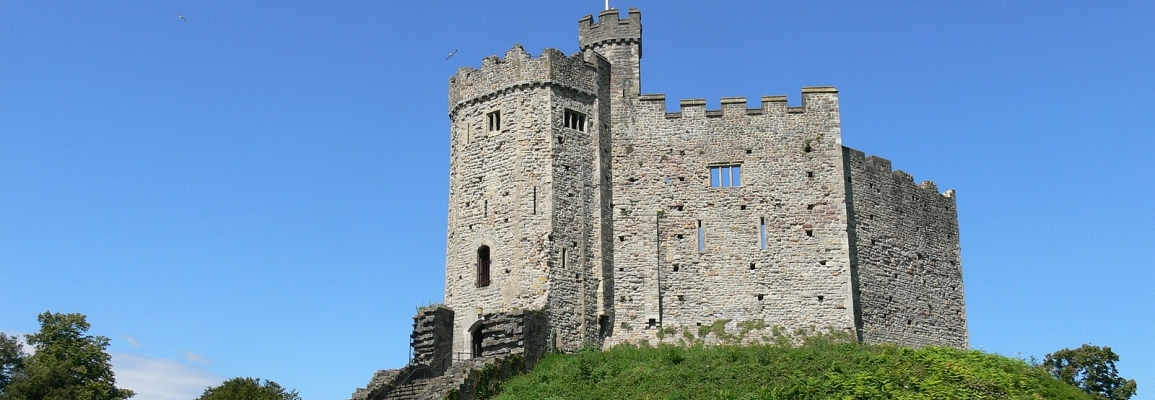Program Dates: May 19, 2024 - June 12, 2024
Wales is ideal for learning about resilience and sustainability. Over centuries, the Welsh culture and language persevered through Roman, Saxon, and Norman invasions as well as Wales’ incorporation into the British state. Welsh communities later adapted to the pressures of industrialization, migration, and urbanization. Even after the collapse of heavy industry in the 1980s, the communities of Wales’ former mining valleys became greener and more economically- and culturally-diverse. Now, Welsh communities must respond to the global challenges of warming temperatures and rising sea-levels, energy and supply chain uncertainties, and further economic transition. To understand historical and current resilience strategies, students will: conduct sites visits to and historical research on Welsh resilience, including community responses to the industrial coal economy; observe contemporary resilience strategies through site visits and activities with community leaders, green businesses, and elected officials; and train in archival research methods to develop public resources about the history of Welsh resilience in industrial South Wales. A wide range of related course activities include visits to the Welsh capitol Cardiff, a Neolithic burial site, a UNESCO World Heritage site, several ancient castles, an underground mine, wind farms, one of Europe's best beaches, and two nights in London.
Location
Rural Wales, UK: relatively rural area of southern Wales approximately 30 and 60 minutes drive to major cities of Swansea and Cardiff, respectively.
Academics
Course Prefix | Course Name | Credits | Instructor |
HIS 3515 | Energy and Community Resilience in Wales | 3 | William Schumann |
LIB 5020 | Information Sources & Services | 3 | Jennifer Luetkemeyer |
LIB 5060 | Building Connections Through Community and Culture | 3 | Jennifer Luetkemeyer |
Faculty Leaders
Dr. William Schumann
Professor of Community Based Research
Department of Rural Resilience & Innovation
Dr. William Schumann is a cultural anthropologist in the Department of Rural Resilience and Innovation. He has led seven study abroad courses in Wales since 2003. Dr. Schumann's courses have partnered with many government, non-profit, and private enterprises over the years. Students in the Wales course have enjoyed opportunities to interact with officials and citizens from all walks of life in Wales--including the Prince of Wales and Duchess of Cornwall in 2007! In addition to maintaining a long-term teaching engagement in rural Wales, Dr. Schumann interned with the National Assembly for Wales (now called the Senedd) as part of his doctoral research.
Dr. Jennifer Luetkemeye
Associate Professor of Library Science
Department of Media, Career Studies
Dr. Jennifer Luetkemeyer is an Associate Professor of Library Science in the department of Media, Career Studies, and Leadership Development in the Reich College of Education. She previously led a study abroad to Germany, France, and Switzerland; and she has personally travelled across Europe, Canada, the Caribbean, and the U.S.
Program Cost: $3008
Program cost includes most meals, and lodging. All fees associated with tourist site visits and activities.
Please note - Students are responsible for the total program cost upon submitting the application and deposit. Refunds are contingent upon meeting the minimum enrollment of the program. If a student decides to withdraw before departure, that student may be eligible for a refund if the program has met minimum enrollment and is therefore viable.
Non-billable costs are estimates only and will be affected by personal spending habits, currency fluctuations, etc. Prices listed in USD unless otherwise noted. Students are encouraged to start planning for their study abroad program costs well in advance.
Payment Schedule | Amount | Date |
Deposit | $300 | Upon receipt of application |
Remaining balance due | $2708 | 02/19/2024 |
Estimated Additional Expenses |
|
Undergraduate Tuition - Resident | $153/credit hour |
Undergraduate Tuition - Non-resident | $173/credit hour |
Graduate Tuition - Resident | $188/credit hour |
Graduate Tuition - Non-resident | $208/credit hour |
Summer fees | $25 |
Airfare | $1300 (estimate) |
Passport | $150 |
Spending money | $300 |
Appalachian reserves the right to cancel or alter the program format or to change costs in case of conditions beyond the university's control. Further details about Appalachian's withdrawal/cancellation policy can be found at this link.
Application Process
- In order to apply for this program, you will need to contact one of the program leaders and provide your Banner ID and email address. Program leaders may request additional information or a meeting to discuss the details of the program and your interest.
- When permission to apply for the program is granted, you will receive an email from your program leader with instructions to apply.
- Apply to the program following the instructions from the program leader.
- Print, sign and drop off your application at the Office of International Education and Development at Plemmons Student Union (PSU), Suite 321 ( 3rd floor), 263 Locust Street Boone, NC 28608. Your application will be considered complete when you have submitted your digital application, paid the $300 deposit, and dropped off your printed and signed application. The fee cannot be paid until it appears on your student account. Please note that it may take 2–3 business days for it to post to your account. You will receive an email with Instructions for paying the deposit fee. Instructions can also be found in the application.
